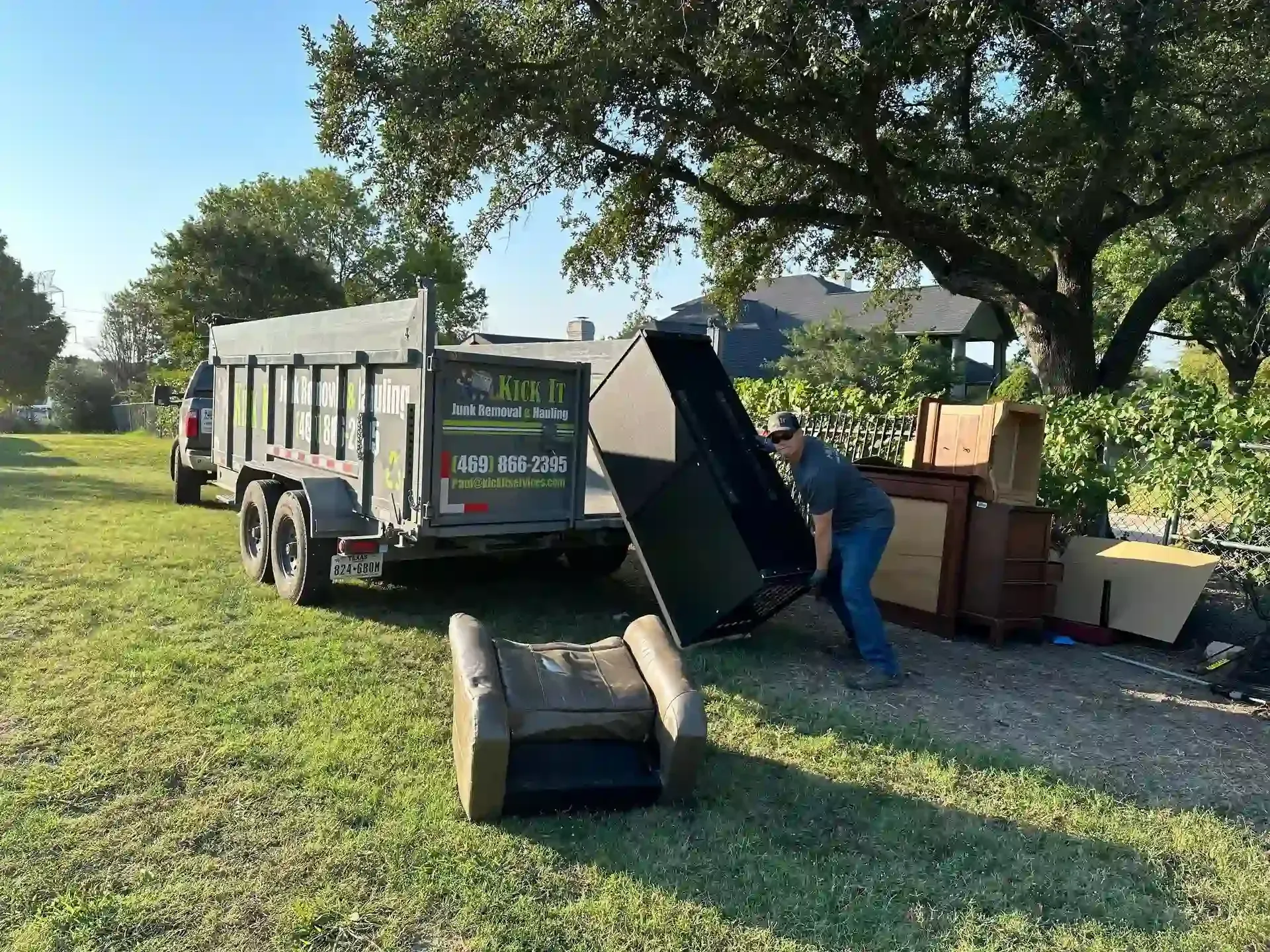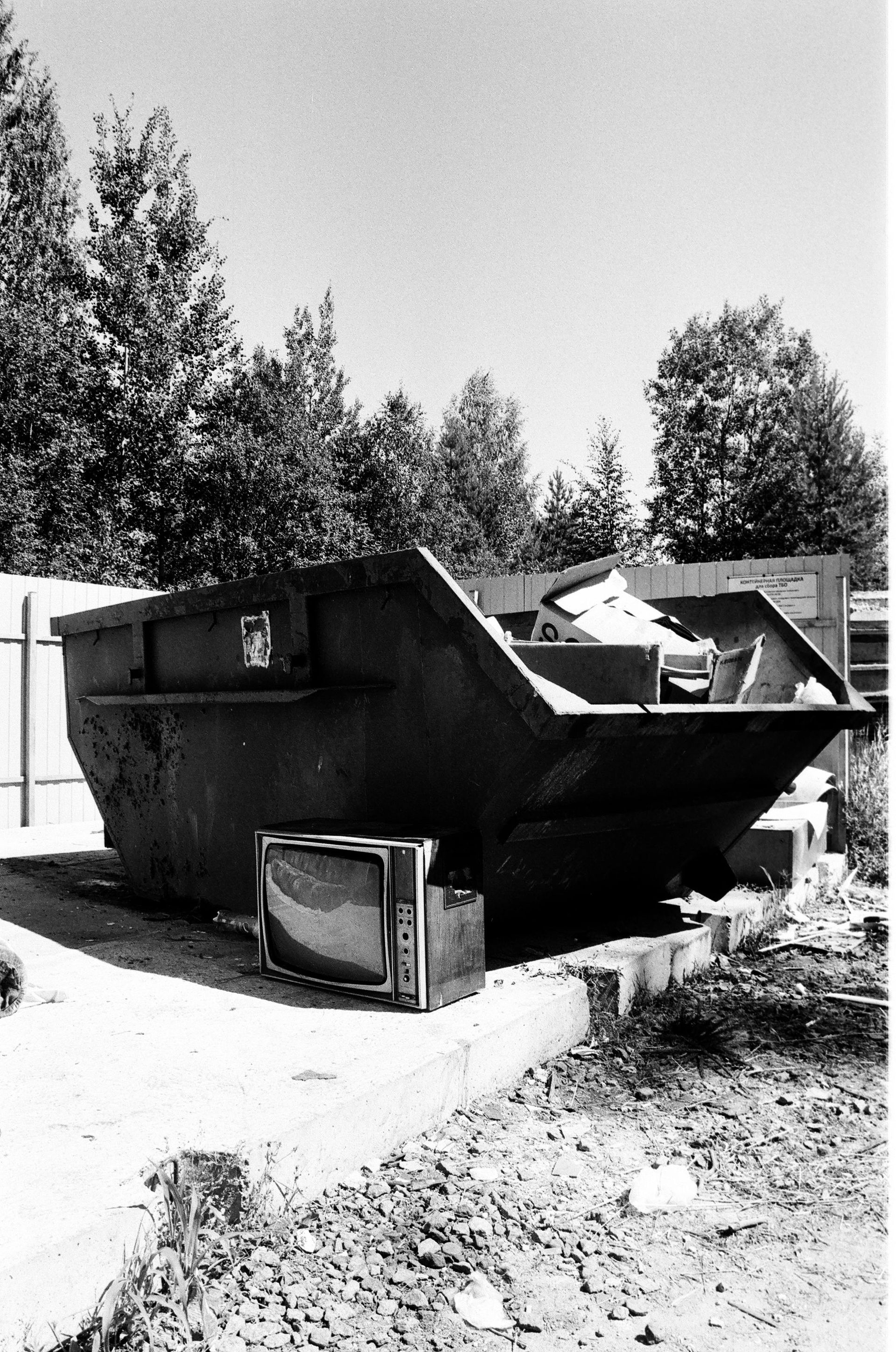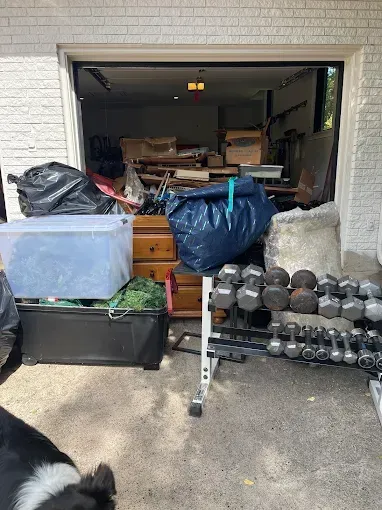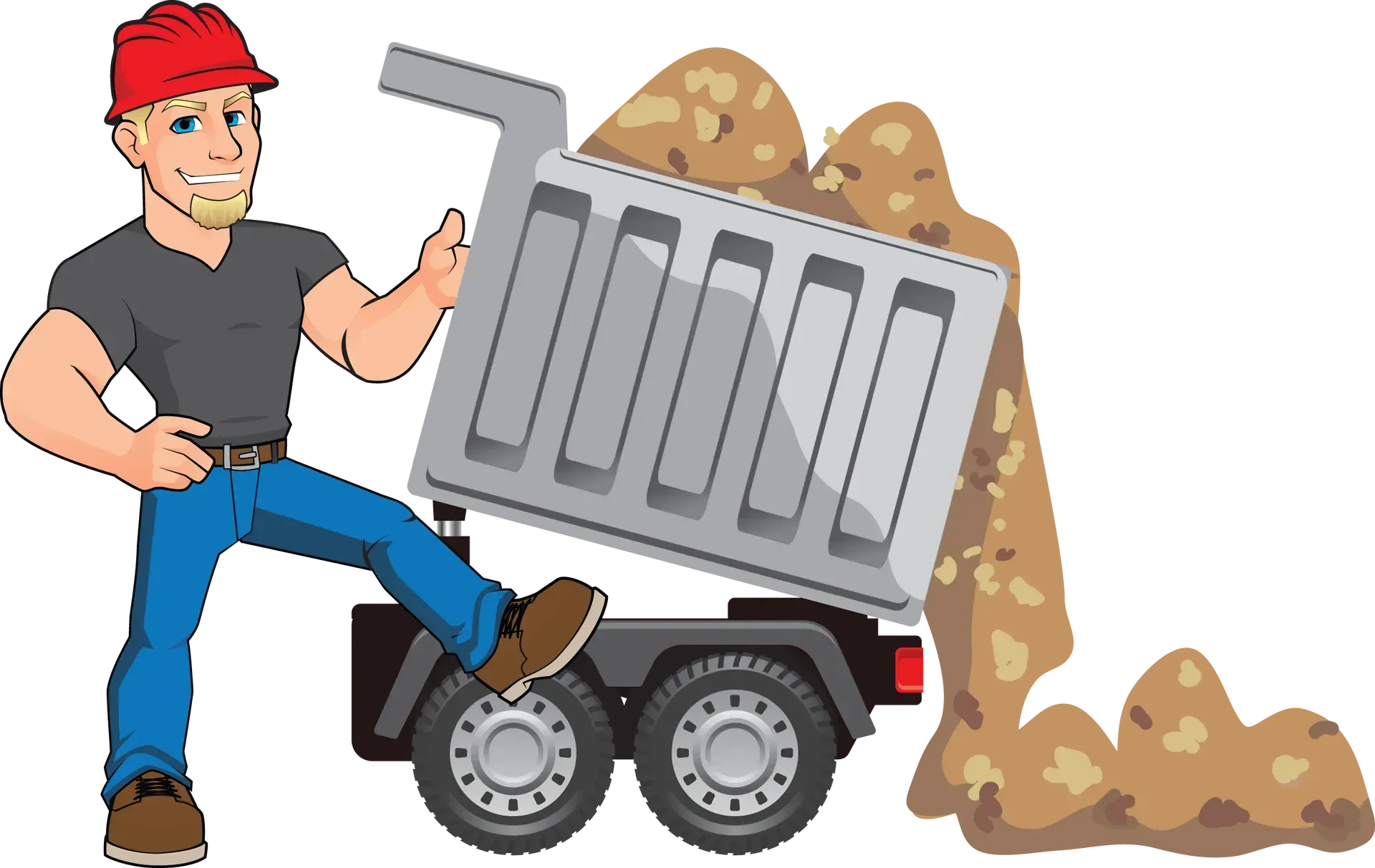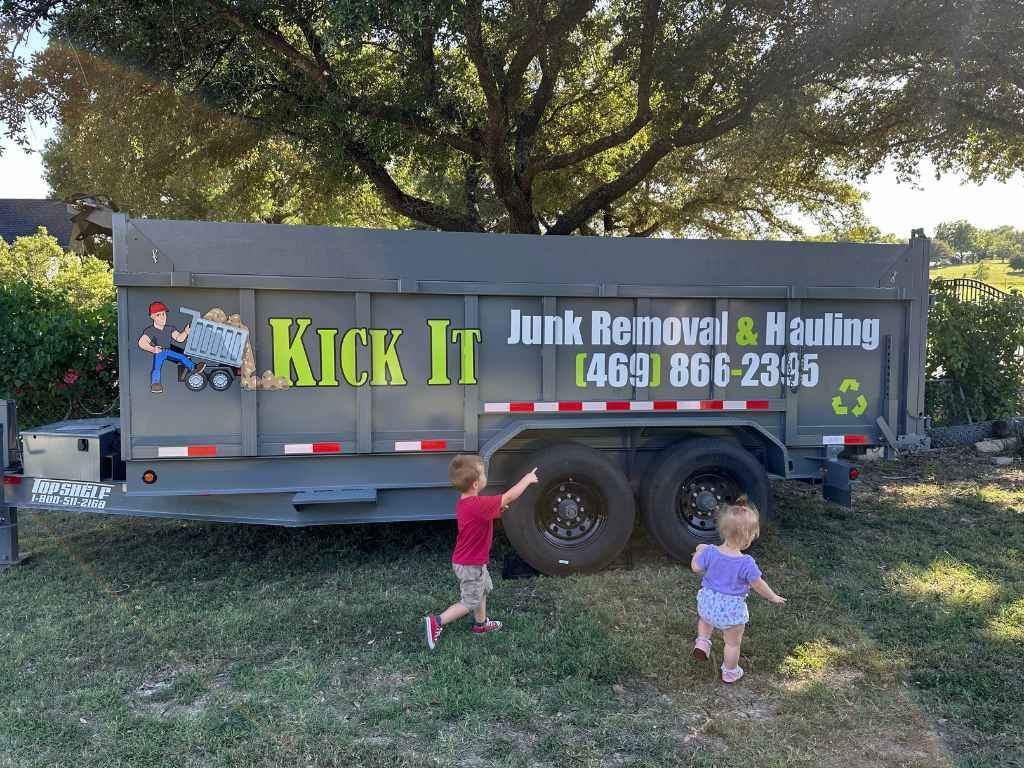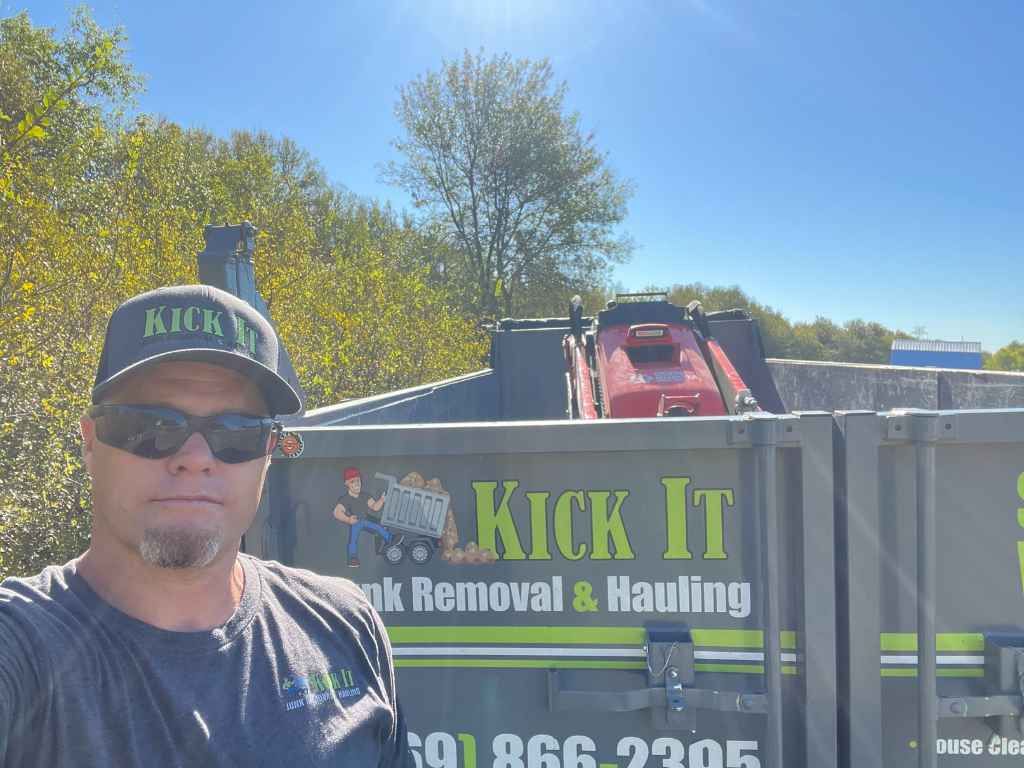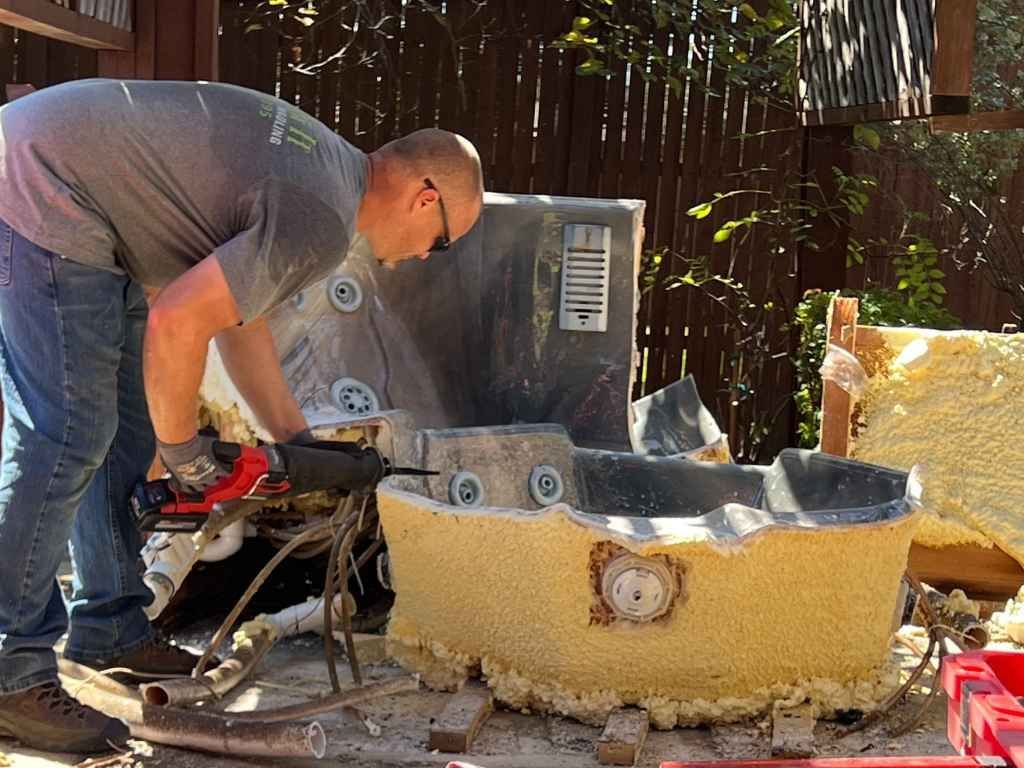How Recycling E-Waste Helps Protect the Planet
Every year, millions of electronics—ranging from outdated phones and computers to broken televisions—are discarded, with many ending up in landfills. This massive influx of e-waste leads to the release of harmful chemicals into the environment, creating long-term pollution issues. E-waste has become one of the fastest-growing waste streams in the world, and improper disposal of these items can result in devastating consequences for the planet. At Kick It Junk Removal, we recognize the critical need to dispose of electronics responsibly to minimize environmental harm.
Recycling e-waste is not just about reducing physical clutter; it plays a pivotal role in conserving natural resources and reducing pollution. When electronics are improperly discarded, toxic substances like mercury, lead, and cadmium can leach into the soil and water, harming ecosystems. By choosing to recycle electronics through proper channels, we can prevent such contamination. In this article, we will explain how e-waste recycling works, why it's vital for the environment, and how each of us can contribute to a more sustainable future.
The Environmental Benefits of Recycling E-Waste
Recycling e-waste plays a crucial role in reducing the environmental damage caused by discarded electronics. Electronic devices often contain hazardous materials like lead, mercury, and cadmium, which can seep into the ground and contaminate soil and water. By recycling e-waste, these harmful substances are kept out of landfills, preventing pollution and safeguarding ecosystems. Instead of sitting in landfills, valuable materials such as metals and plastics can be extracted and repurposed for new products, minimizing the need for new raw materials.
The benefits extend beyond just waste management. Recycling e-waste also reduces the carbon footprint associated with manufacturing new electronics. When recycled components are used, less energy is required to extract, refine, and process raw materials. This contributes to a reduction in greenhouse gas emissions, helping combat climate change. In the long run, e-waste recycling helps create a more sustainable, resource-efficient economy that benefits both the planet and future generations.
Why Proper E-Waste Disposal Matters for Our Planet
Proper disposal of e-waste is essential for the well-being of our environment. When electronics are discarded improperly, they can release toxic chemicals into the air, soil, and water, posing serious health risks to humans, animals, and plants. Items like old phones, televisions, and computers often contain harmful substances that can leach into the environment, causing long-term damage. Recycling these devices ensures that hazardous materials are safely processed, rather than being left to degrade in landfills.
Additionally, recycling e-waste helps conserve natural resources. Many of the components in electronics, such as gold, silver, and copper, are finite and require significant energy to mine. By recycling these materials, we reduce the demand for mining and decrease the environmental destruction caused by extraction processes. In this way, responsible e-waste disposal not only prevents harm to the environment but also promotes a more sustainable use of resources for the future.
How E-Waste Recycling Helps Preserve Natural Resources

E-waste recycling is an effective way to conserve the valuable materials found in electronic devices. Modern electronics often contain precious metals like gold, silver, and copper, which can be extracted and reused when the products are properly recycled. These materials are limited in supply and require substantial energy to mine, so recycling them helps reduce the environmental impact associated with extraction and processing. By recycling e-waste, we ensure that these valuable resources are used efficiently, reducing the need for new mining operations.
In addition to precious metals, e-waste recycling recovers other useful materials, such as plastics and glass. These materials can be repurposed to create new products, further conserving resources. By recycling e-waste instead of sending it to landfills, we help close the loop on resource usage and contribute to a more sustainable, circular economy where materials are reused and repurposed, reducing the strain on the planet's finite resources.
The Impact of E-Waste on the Environment and How to Combat It
E-waste is one of the fastest-growing waste streams globally, and its impact on the environment can be severe. When electronics are not properly disposed of, they release harmful chemicals like lead, mercury, and arsenic into the air, water, and soil. These toxins can cause long-term damage to ecosystems, harming plant life, wildlife, and even human health. In many cases, these chemicals can contaminate the food chain, leading to more widespread environmental issues.
Recycling e-waste helps combat these negative effects by ensuring that hazardous materials are safely removed and disposed of in controlled environments. By choosing responsible recycling methods, we prevent pollution and contribute to cleaner air, water, and soil. Moreover, recycling helps recover valuable materials that can be reused in the production of new electronics, reducing the need for raw material extraction. This process not only minimizes environmental harm but also encourages a sustainable approach to managing electronic waste.
Protecting Our Planet Through Responsible E-Waste Recycling
E-waste recycling is an essential step in protecting our planet from the growing threat of electronic waste. As technology continues to evolve, more devices are being discarded every year, often ending up in landfills where they can release harmful chemicals into the environment. Proper recycling ensures that these devices are dismantled and the materials within them are either safely disposed of or reused. This reduces the environmental impact of e-waste and prevents dangerous chemicals from leaching into the earth and water systems.
By recycling e-waste, we not only protect the environment but also contribute to the reduction of resource depletion. Electronics are made from valuable materials like metals, plastics, and glass, which can be recycled and repurposed to create new products. This reduces the need for mining and resource extraction, which can have devastating environmental effects. In this way, responsible e-waste recycling supports a more sustainable and eco-friendly future.
What Happens When E-Waste Isn't Recycled Properly
When e-waste is not recycled properly, it can lead to serious environmental and health problems. Many electronic devices contain hazardous substances such as mercury, lead, and cadmium, which can leak into the soil and water if left in landfills or improperly disposed of. These toxic materials can contaminate local ecosystems, harming wildlife and even affecting human health through the food chain. The longer these devices sit in landfills, the more likely they are to release these dangerous chemicals, causing lasting damage to the environment.
Improper disposal also means that valuable resources in electronic devices go to waste. Materials like copper, aluminum, and rare earth metals can be recovered through recycling, but when e-waste isn’t processed correctly, these resources are lost. This not only wastes valuable materials but also increases the need for mining, which can be harmful to the environment. Responsible e-waste disposal ensures that harmful substances are prevented from spreading and that valuable resources are reused, helping to create a cleaner and more sustainable world.
How Recycling Your Electronics Can Reduce Pollution
Recycling electronics is one of the most effective ways to reduce pollution caused by e-waste. When devices like smartphones, computers, and televisions are thrown away, they release harmful chemicals into the environment that can pollute the air, water, and soil. These pollutants can have long-term effects on ecosystems and human health, making proper disposal essential. By recycling e-waste, we ensure that toxic materials such as lead, mercury, and cadmium are safely managed, preventing them from contaminating the environment.
In addition to reducing pollution, recycling electronics helps conserve natural resources and energy. Extracting raw materials for new products requires energy and often results in environmental damage. By recycling the materials found in old electronics, such as metals and plastics, we reduce the demand for mining and the associated environmental impacts. This process helps to lower greenhouse gas emissions, reduce waste, and promote a circular economy where materials are reused rather than disposed of, ultimately leading to a healthier planet.
The Environmental Impact of Recycling E-Waste for a Greener Future
Recycling electronic waste, or e-waste, plays a crucial role in reducing the environmental burden of discarded electronics. With millions of devices being replaced each year, much of this waste ends up in landfills, where toxic materials such as lead, mercury, and cadmium can leach into the soil and water. These harmful substances pose significant risks to both ecosystems and human health. By recycling e-waste responsibly, we can mitigate these risks and prevent pollution from reaching critical natural resources.
Furthermore, recycling e-waste helps conserve valuable raw materials. Many electronic devices contain precious metals like gold, silver, and copper. Extracting and reusing these materials through recycling reduces the need for mining, which has its own environmental impact. By recycling, we close the loop on these valuable resources and reduce the need for further extraction.
Conclusion
Recycling e-waste isn’t just about keeping the planet clean; it’s about making sure that valuable resources are reused and harmful materials are handled responsibly. By recycling your old electronics, you help reduce pollution, save natural resources, and reduce the strain on landfills. Small actions like recycling your unwanted phones, laptops, or televisions can add up to significant environmental benefits, ensuring that toxic chemicals don’t make their way into the environment. As technology continues to advance, we must all do our part to prevent e-waste from becoming a larger issue.
If you have old electronics sitting around collecting dust, don’t let them end up in the trash. Kick It Junk Removal & Hauling is here to help with convenient e-waste disposal solutions. Whether you're clearing out old gadgets at home or upgrading your office tech, we make recycling simple and hassle-free. Our team will ensure your electronics are disposed of properly, so you can feel good about contributing to a cleaner, healthier planet. Reach out today to schedule your e-waste pickup or ask any questions you may have. You can contact us at Paul@kickitservices.com or give us a call at 469-866-2395. Let’s work together to make the world a better place for future generations.
